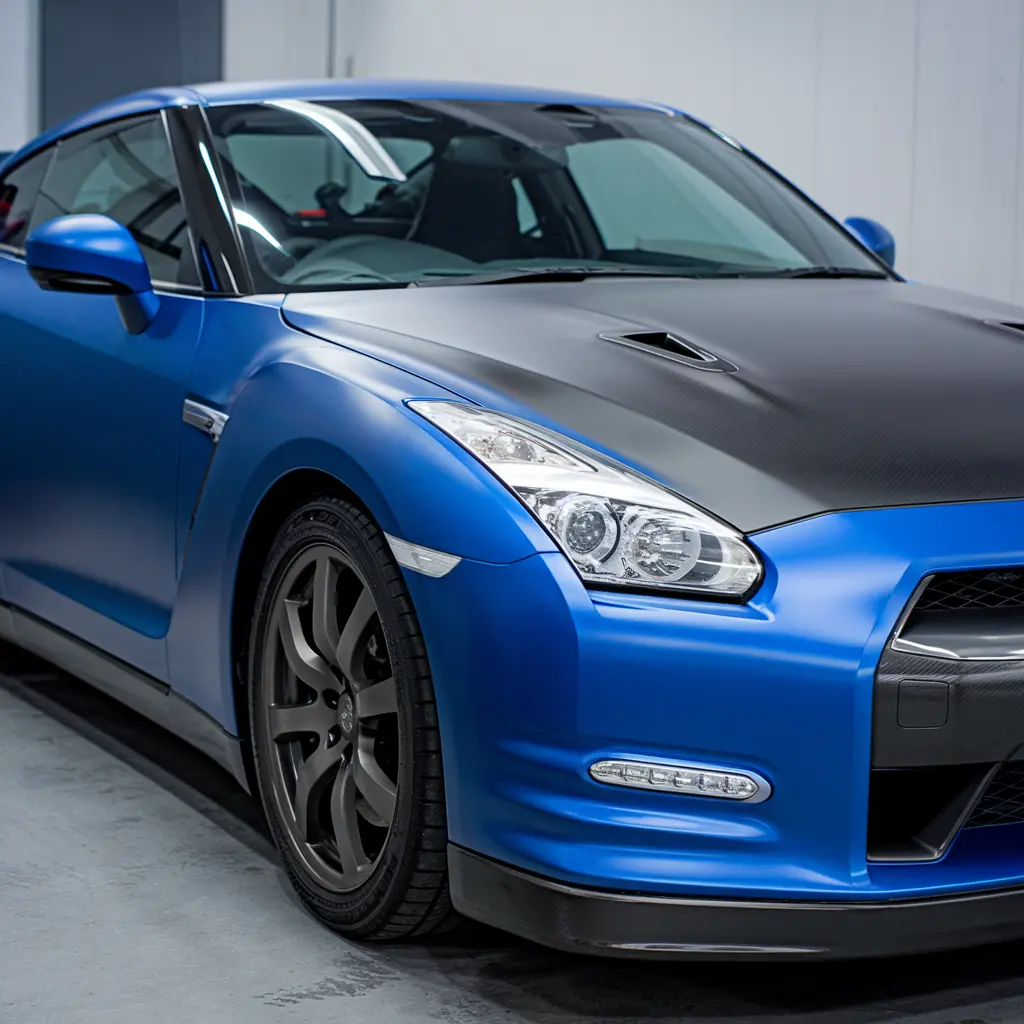
Choosing the right auto wrap for your car is essential for both aesthetics and durability. Popular materials include cast vinyl, known for its conformability to complex curves and resistance to shrinking, and calendared vinyl, which is thicker and less flexible. Specialty films offer unique finishes, such as reflective, carbon fiber, and chrome. When it comes to finishes, options range from gloss, which mimics factory paint, to matte for a non-reflective surface, satin for a balanced sheen, and chrome for a mirror-like effect. Each finish and material type serves distinct purposes and offers various benefits. Explore further to understand these elements thoroughly.
Types of Auto Wrap Materials
When considering auto wraps for your vehicle, understanding the types of materials available is important for making an informed decision. The primary categories of auto wrap materials include cast vinyl, calendared vinyl, and specialty films. Each material possesses distinct characteristics, making them suitable for different applications and performance requirements.
Cast vinyl is renowned for its durability and conformability. Produced through a process that involves casting liquid vinyl onto a casting sheet and curing it, cast vinyl forms a thin, flexible film. This material is highly resistant to shrinking and can conform to complex curves and contours, making it ideal for long-term applications and intricate designs.
Calendared vinyl, on the other hand, is manufactured by extruding the vinyl through rollers, resulting in a thicker and less flexible film. While more cost-effective than cast vinyl, calendared vinyl is prone to shrinking and is best suited for flat or slightly curved surfaces and shorter-term applications.
Specialty films encompass a range of materials with unique properties, such as reflective, carbon fiber, and chrome finishes. These films are often used to achieve specific aesthetic effects or functional benefits, like increased visibility or a high-gloss appearance. Understanding these materials enhances your ability to select an auto wrap that meets your vehicle’s specific needs and desired aesthetic.
Popular Finishes and Styles
Understanding the various materials available for auto wraps is a foundational step in selecting the right wrap for your vehicle. Equally essential is an informed decision about the popular finishes and styles. The automotive wrap market offers a vast array of finishes, each catering to specific aesthetic preferences and functional needs.
Gloss finishes replicate the factory paint look, providing a high-shine, reflective surface that enhances color vibrancy. Matte wraps, conversely, offer a non-reflective, flat appearance that imparts a sophisticated, understated elegance. For those seeking a tactile experience, satin finishes strike a balance, offering a sheen that is neither too glossy nor completely matte.
Chrome wraps stand out with their mirror-like surface, ideal for those desiring a bold, attention-grabbing look. Carbon fiber wraps mimic the woven texture of real carbon fiber, adding a high-tech, performance-oriented aesthetic. Brushed metal finishes offer a rugged, industrial appearance, appealing to enthusiasts of a more mechanical look.
Specialty wraps, such as color-shifting or holographic finishes, leverage advanced pigment technology to create dynamic visual effects that change with light and angle. Understanding these options allows for a tailored approach, ensuring your vehicle not only stands out but also resonates with your personal style and the automotive community.
To sum up, the diverse range of auto wrap materials and finishes offers numerous customization possibilities for vehicle aesthetics and protection. Significantly, the global automotive wrap films market is projected to reach USD 10.8 billion by 2025, highlighting the growing demand for these products. This statistic emphasizes the rising consumer and commercial interest in auto wraps, fueled by their versatility, durability, and cost-effectiveness compared to traditional paint jobs. Understanding these options enables more informed decisions in vehicle customization and maintenance.